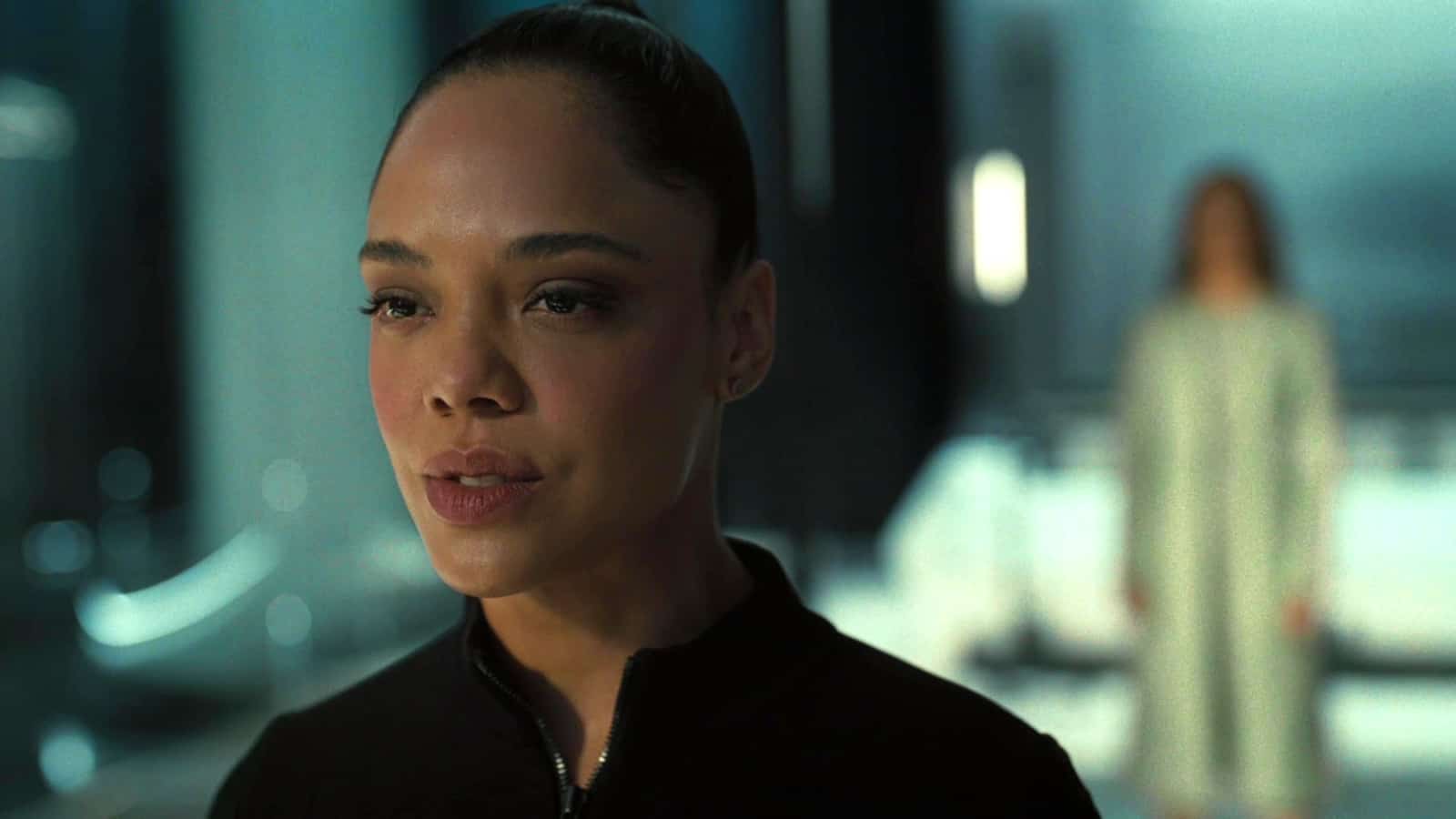Westworld, on HBO Max, was always a mirror game. In all its seasons, the argument used the idea of a deceptive form of narration to support its story. In the sixth chapter of its fourth season delves into that fundamental idea. Also, it rebuilds the very root of the premise until it is taken to the next level.
What makes the human being imperfect, incorrigible, stubborn and full of tragic hope? Charlotte Hale asks the question out loud more than once. In particular, when she must deal with the vulnerable stubbornness of Caleb, who has become the symbol of the most sinister places that the script wants to travel.
A survivor of his own history and a piece in a complex cruel mechanism, Caleb remembers his past, the reason to cling to life. He is no longer a man, but he is more than a slave. Less than a replica, but greater than a failed test. The character shows the extent of the cruelty of the robot world. Trapped in a labyrinth of copies in his image and likeness, Caleb must traverse a painful path to supposed redemption.
And it is, perhaps, this magnificent and sorrowful sequence, the best of Westworld since its celebrated first season. The eternal, endless and violent Turing Test to which the hosts were subjected, is now a weapon for suffering. The bicameral mind, a trap of extremes with infinite edges to go through and avoid. Time and time again, the series contemplates the emptiness of human existence at the mercy of artificial intelligence. The cruel rupture of the idea of collective consciousness to create a fortified wall in which the world is a blind hostage.
Caleb, the weapon, the hostage, the victim, living proof of persistence in Westworld
Caleb, who stars in what is probably the most brutal notion of Charlotte Hale’s alienated control, is a victim. He is also an unknown. Why does he disobey in the midst of absolute control? It’s the question Hale asks himself, after the William seemed unable to fit into the grand scheme of things. It is what obsesses the creator of all horrors, while the world she created, slowly collapses around him.
“They want to run away from you,” says Caleb to explain the incomprehensible robot suicides. The crack in the placid stillness of a world without changes or new questions to answer. But Caleb perseveres, insists, continues, continues, dies every time. “And this is the whole revelation”, replies Charlotte, once she thinks she has discovered the secret of her hostage, her adversary and her nemesis. “The stubborn and insignificant human nature”.
The memories that come together in the 6th chapter of the fourth season of Westworld
But if there was any doubt that on this occasion, the season imitates the diagram of the search for self-awareness of its first chapters, the most recent dispels them. He did this by lending weight and substance to Jeffrey Wright’s Bernard. The character, turned into the last vestige of a defeated world, is now an unlikely prophet and incomprehensible ally of the rebellion. “You have to trust me,” implores Bernard, architect of the central core of the story around him. “I’ve seen all the possible endings and that’s a hope,” he says, amid the rubble that was the park that the human version of him helped to raise.
Bernard, more than any other creature of Westworld, is the very essence of his proposal. The first robot that took the place of a human. The successful test of consciousness control and deceptive reality. And also, the version of a genuine conscience, supported by a reflection of reality unfolded and twisted into innumerable different facets.
“The probabilistic algorithm analyzes the future”says Bernard as he tries to find the correct variable to save the world. The script uses the character as a transit that goes from the past to a future that is built from the urgency. “That way I can guess what’s going on.” The robot that helped create others must now free his species from Charlotte Hale’s control and, in turn, restore free will to the human race.
Bernard, a piece in a larger strategy that Westworld has yet to reveal
There is undoubtedly a mythological element in this Bernard capable of relating reality as it happens. Caleb is the line that leads Charlotte to the center of her suspicions of the flaw in her plan. Bernard is the triumph of the possibility of liberation. And now Maeve, resurrected as a weapon twenty-three years after her apparent death, is the tool of destruction.
The intersection between what happened — and what Bernard witnessed — and what will happen creates a paradox that leads to a single resolution. Either the total death of a failing world or the rebirth of the old. Westworld prepares for an end to his story in which the perception of identity is everything. Also, the greatest sacrifice for a construction elaborated on the human mind, as the last redoubt in the midst of a war that is still being waged on disparate terrain.
The possible end of the story
Westworld, as a premise, always analyzed the human being from his greed and his vanity. And the sixth chapter of its fourth season makes it clear that the possible end will be a sustained cataclysm in both ideas. The plot, which has always analyzed human nature as predictable and fragmented into analysis-prone behaviors, explores a new dimension of the premise. This time, Westworld justifies his puzzling script decisions and to narrate one of his most complicated points. And to do so, from an effective elegance that dazzles with its layers of symbolism and essential meaning.

Sign up in hbo max and you will have access to the best series and exclusive movies What TheWire, The Sopranos either Game of Thrones. It includes the entire Warner catalogue, the Cartoon Network classics and the big premieres like Matrix Y dunes.
What is reality? It is a question that Westworld It has been raised several times in the past. In the sixth chapter he answers it. In addition, he breaks down the conception about the notion of reason and the substance of the comprehensible as a novel idea. Jonathan Nolan and Lisa Joy’s series dispenses with background narratives and moves steadily through a complex cycle.
But the succession of ideas does not need tricks or temporary games on this occasion. The heart — mechanical, cruel, twisted — of Westworld was uncovered two chapters away from its season-closing episode. And perhaps, he points to the inevitable end of a narrative that he found in his own mythology, all the answers.


